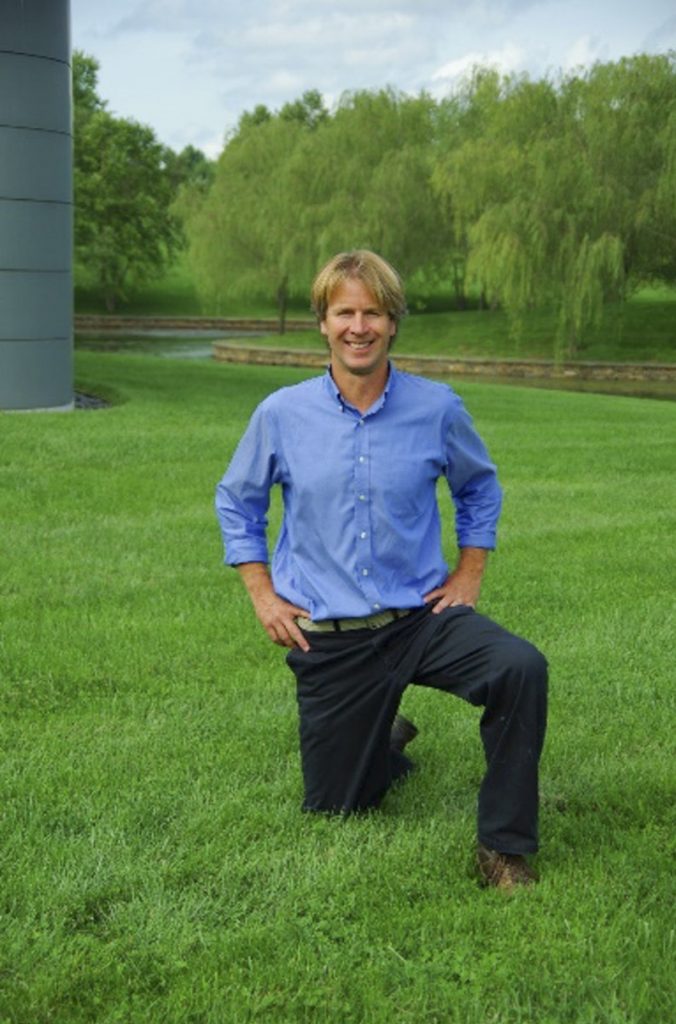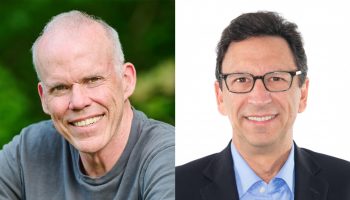Over its nearly 150-year existence, Chautauqua has celebrated the environment and is working to become a leading model in sustainability. With the recent addition of the Climate Change Initiative, Chautauqua strives to emulate behaviors that will sustain and revitalize the environment in face of global warming.
One of the ways the Institution is working to adapt to the changing climate is by learning from other establishments with experience in sustainability.
In a special Bird, Tree & Garden Club event with the Climate Change Initiative at 12:15 p.m. Tuesday, Aug. 23 in Smith Wilkes Hall, sustainability leader Paul Tukey will give a lecture on cultivating and restoring landscapes followed by a panel discussion. His lecture, “Sustainable Landscapes,” will end the BTG’s Brown Bag Lecture Series for 2022.

The panelists include Climate Change Initiative Director Mark Wenzler, Supervisor of Gardens and Landscapes Betsy Burgeson and BTG Vice President Jennifer Francois.
Tukey is a renowned expert on organic landscaping and serves as the director of environmental stewardship at Glenstone Museum. With degrees in journalism from the University of Maine, Tukey has authored several books, including The Organic Lawn Care Manual: A Natural, Low-Maintenance System for a Beautiful, Safe Lawn. Most recently, he co-authored Raising Tomorrow’s Champions: What the Women’s National Soccer Team Teaches Us About Grit, Authenticity and Winning. He co-founded horticulture magazine People, Places and Plants, which shares the same name as a HGTV gardening show.
Glenstone is a modern art museum in Potomac, Maryland, that showcases a collection of post-World War II art throughout refurbished indoor and outdoor spaces. Glenstone’s architecture and natural landscape are key components of the museum as a whole, and provide an immersive experience for visitors to understand some of the most influential artworks of the 20th and 21st century.
“Sustainability is a core value for Glenstone,” Wenzler said. “From the very beginning, the owners have focused on creating the most sustainable place that they can, and also educating visitors and the public about the benefits of sustainable landscapes.”
Tukey develops the strategies and protocols for sustainability and carbon-reduction that sustain Glenstone’s nearly 350 acre organic landscape.
“We take a very holistic view of sustainability and another important word called ‘regeneration,’ ” Tukey said. “We actually think that sustainability doesn’t go far enough; if we simply sustain where we are today in the world, we won’t be in a very good place. What we’re trying to do is to regenerate, regenerate or rejuvenate.”
One of the ways in which Tukey and Glenstone revitalize the environment is by the use of native plants. They have planted over 12,000 native trees since the museum’s start in 2006.
Aside from the “outside world,” Tukey says the indoor environment of the museum is just as important when it comes to promoting sustainability and restoring the environment.
“In the indoor world, we’re trying to be as energy efficient as possible,” Tukey said. “We really look at everything we can possibly do. We constantly recycle. We are an art museum, so we’re putting up exhibits and taking down exhibits, and so we recycle those materials every way that we can.”
Some of the efforts Tukey has made to conserve energy within the confines of Glenstone include offering public transportation for visitors to spare gas, composting food for the outdoors and creating plans to mitigate water erosion and sediment deposits.
In his lecture, Tukey will touch on his experience in organic landscaping and Glenstone’s work with the environment.
The lecture and panel also serves as an opportunity for Glenstone and Chautauqua to learn from each other.
“There are interesting similarities between Glenstone and Chautauqua,” Wenzler said. “First of all, they’re both cultural institutions where you have a large number of visitors who come, and they’re both surrounded by beautiful grounds. We can compare and contrast some of the similarities between how we are supporting sustainable landscapes that protect the lake…”
Tukey anticipates hearing from the panelists and audience members about the sustainability measures the Institution has adopted overtime.
“Part of our core values is that we do want to be seen as industry leaders,” Tukey said. “You can’t lead in a vacuum. You’ve got to get out front and share the message. I always learn from wherever I go…”
In his first visit to Chautauqua, Tukey hopes to inspire Chautauquans to become educated and join the fight against climate change.
“We want to become part of a larger national and international dialogue about what cultural institutions need to be doing right now in the face of unprecedented climate disasters,” Tukey said. “I’m going to give people these little tools and big tools that they can use in their own way. We can start getting more organic matter in the soil, start doing things in a more natural way. We can solve this, but we have to convince people. We have to inform, inspire and invite people to join.”
Wenzler agrees with Tukey that the lecture and panel will be an inspiration for Chautauquans to adapt to the changing climate.
“I hope that the number one thing people come away with from the lecture is to be inspired, to emulate the Glenstone model,” Tukey said. “We can create these incredibly beautiful artistic landscapes with native plantings that help absorb stormwater runoff, that promote wildlife habitat, that serve to enhance and support natural systems that don’t use pesticides.”




